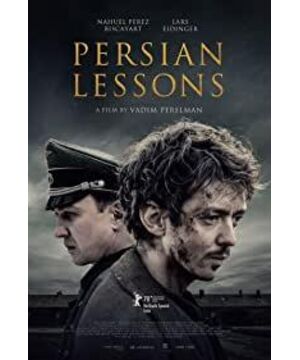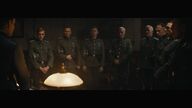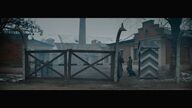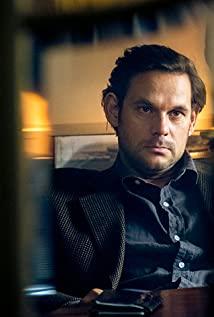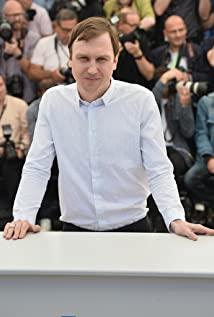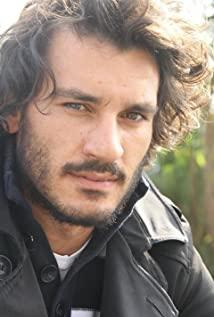We may have all heard that when a person's life is threatened, he often does many things that he can't usually do, such as bursting out with great strength and amazing physical strength when danger comes, etc., but these are Stress response in human physiology. The film "Persian Language Lesson" shows us an even more incredible thing, because the protagonist of the story responds when his life is threatened by creating a language.
The beginning of the film "Persian Language Lesson" was a massacre against the Jews. At the time of life and death, the protagonist used a Persian book exchanged halfway to pretend to be a Persian and escaped, but because of this, he was killed by a A Nazi SS logistics officer in a concentration camp was chosen to teach him Persian. Faced with a language he knew nothing about, the protagonist had to create a "Persian" out of thin air, so he began to use the names of the Jews held in the concentration camps as the root to create thousands of so-called Persian words. In the end, when Nazi Germany utterly failed, the Nazi officer remembered not the Persian words that would have allowed him to escape, but the names of 2,840 Jews.
Over the years, there have been quite a few movies that reflect the suffering of the Jews during World War II, and excellent works have continued to emerge. It stands to reason that there is nothing that can bring new ideas to people, but this "Persian Language Lesson" still surprised me. . On the one hand, the story of the film itself is too legendary. Although the film is subtitled "based on a true story" at the beginning, it still gives an incredible feeling. On the other hand, the group targeted by the film's lens is somewhat "non-mainstream", which is worth pondering.
remember our names
If there is one keyword for this movie, it is undoubtedly the word "name". For us, a name is a symbol of a person's existence. Behind every name composed of words, there is a vivid life with joys, sorrows and sorrows. Even if one day, this person is gone, as long as his name remains To be remembered, the evidence that he once existed in this world will not be erased.
After watching the film "Persian Language Lesson", I suddenly discovered a very interesting place, that is, the protagonist of this film did not reveal his real name from beginning to end. The name he used in this film was just the name of the Persian he used falsely, and his real name was never given a chance to be spoken. It can be said that he is a real "unknown person".
In this film, the so-called "unknown people" are not the protagonist himself, but the thousands of Jews who were imprisoned in concentration camps like him. Engaged in heavy manual labor, and then silently disappeared from the world at the gunpoint of the Nazis, who are they? what are they called? Where did they come from and where did they end up buried?
no one knows.
There is one scene in the film that left a deep impression on me, that is, after the camp was emptied for the first time, the protagonist who went out to hide came back again. In the clearing, he picked up a rag doll. Obviously, it was a Jewish child who was taken away and destroyed. A strip of cloth with the name "AVIVA" sewed on the doll was also left behind. The protagonist tore off the strip, and when he returned to the empty concentration camp dormitory that was once full of people, he gave the name a "Persian" meaning: life.
Immediately after that, the images that appeared were carts full of Jewish corpses heading for the crematorium, erasing the names of the dead.
This is the most legendary and touching key of the whole film:
A surviving "unknown person" remembers 2,840 "unknown people" who have lived. As long as he recites those names, those people will not disappear.
And remember these names, there is one person.
No snowflake is innocent
"In an avalanche, no snowflake is innocent." This sentence is used in this film, and it can be said that it is more appropriate.
In the past, when we talked about the people who committed terrorist crimes in the war, we talked about the leaders who started the war and planned the conspiracy; and in the previous related movies, the villains are often the most vicious Nazi officers. . But we tend to ignore those seemingly mediocre people who are actually accomplices of evil, such as the guards of the concentration camps, the drivers who transported the Jews, the soldiers responsible for pressing the switch of the gas chamber, etc. They seem to be just fulfilling their own The duty is just a screw in a huge machine, not so sinful.
But this is not the case, each of them is an accomplice of evil.
Let's turn our attention back to the movie. The biggest villain in the movie is an SS captain named Koch. It is worth noting that this Koch's official position in this concentration camp, he is not the highest commander of the concentration camp who has the power to kill all people, but only an officer in charge of the logistics of the concentration camp.
It is in this character that the true meaning of the sentence "no snowflake is innocent" is truly reflected.
We can see that Koch is very different from the Nazi officers in our impressions in the past: he was just a logistician and never shot anyone; he longed for a free and peaceful life; he loved to write poetry and love His family, eager for the war to end as soon as possible, went to open a restaurant with his brother who had fled to Iran to live with each other.
He seems to be a very different SS officer, but in essence, he is no different from all those brutal and murderous SS officers, because he doesn't care about the lives of other races, in his eyes , except for their "noble" Aryan race, all other races are pigs and dogs. He doesn't care about how other people slaughter these "pigs and dogs". What he cares about is how to provide these people with excellent food to make them able to kill more vigorously. For him, the protagonist of this film is nothing but a dog that can be used to look after the home.
While learning the so-called "Persian", Koch kept admiring the beauty of the language, and even wrote a serene poem in the beautiful language he had learned, but what he didn't know was that these were The words he called beautiful were actually the names of the lives he despised and disregarded; the names that disappeared out of his window but he didn't care about were constantly remembered and recited by him.
How ironic this is.
Call me by our names
At the end of the film, the 2840 names appear twice, with completely different results.
The first appearance was at Iranian customs. Koch proudly spoke the "Persian" he had learned, but in fact he was reciting the names of the lives who disappeared into this world under his accomplices, like a wronged ghost. Together, the wronged souls represented have shattered Koch's dream of escaping the trial.
The second time it appeared was in the Allied camp. When the rescued protagonist was asked if he could recall the names of the people who were detained with him in the original concentration camp, the protagonist began to recite those names one by one. As these names were recited, the people around became quiet. They watched the protagonist recite those names one by one, just like seeing the lives represented by those names, standing on this land one by one again. Tell the world about your grievances.
It can be said that this is the softest resistance to make up a language with the names of compatriots and teach it to the invaders, and it does not even have any effect at all. But in fact, this is the most lethal resistance, because it can make those accomplices of evil be entangled by these names for a lifetime, become their nightmares in their lives, and become the iron proof that those wronged souls once existed.
May we all not be that "snowflake".
View more about Persian Lessons reviews


